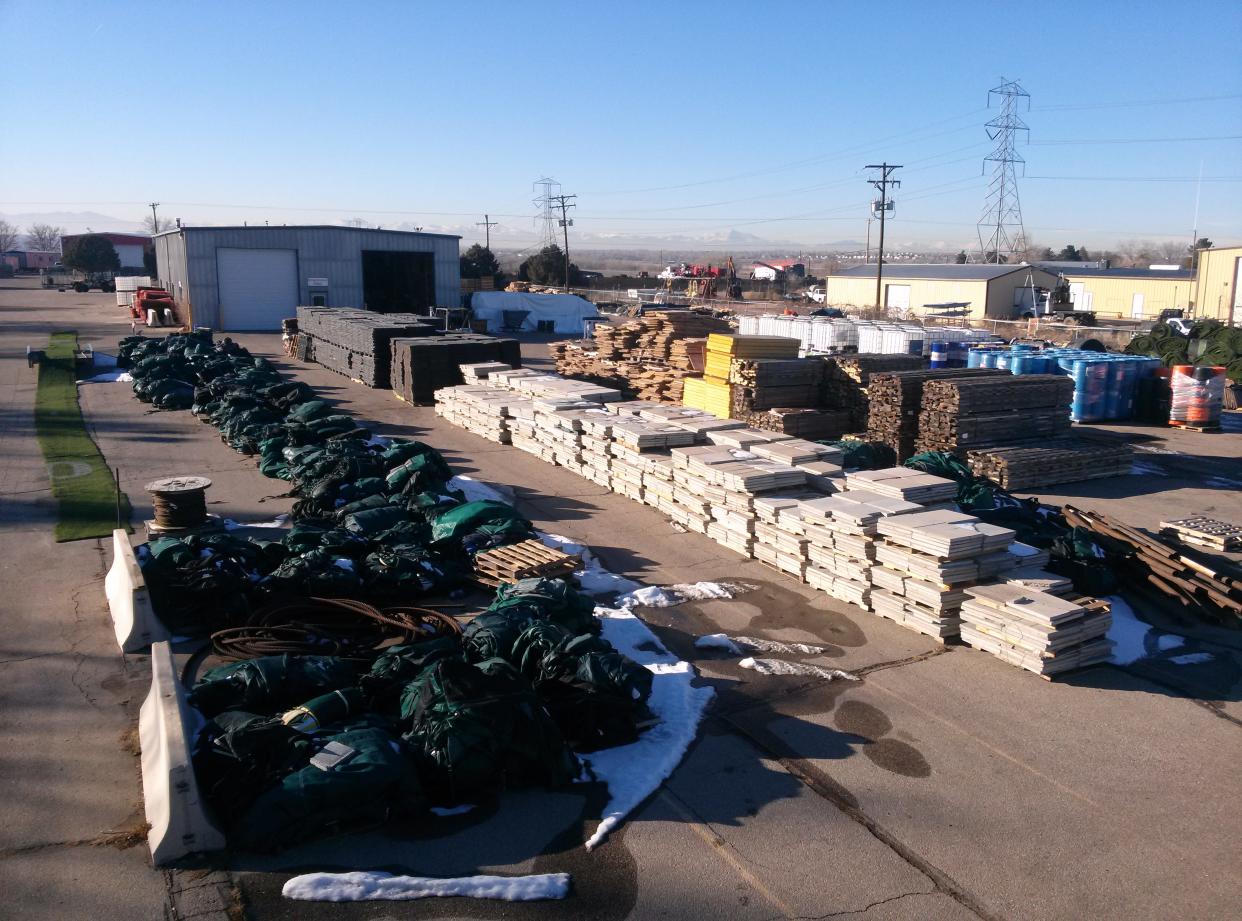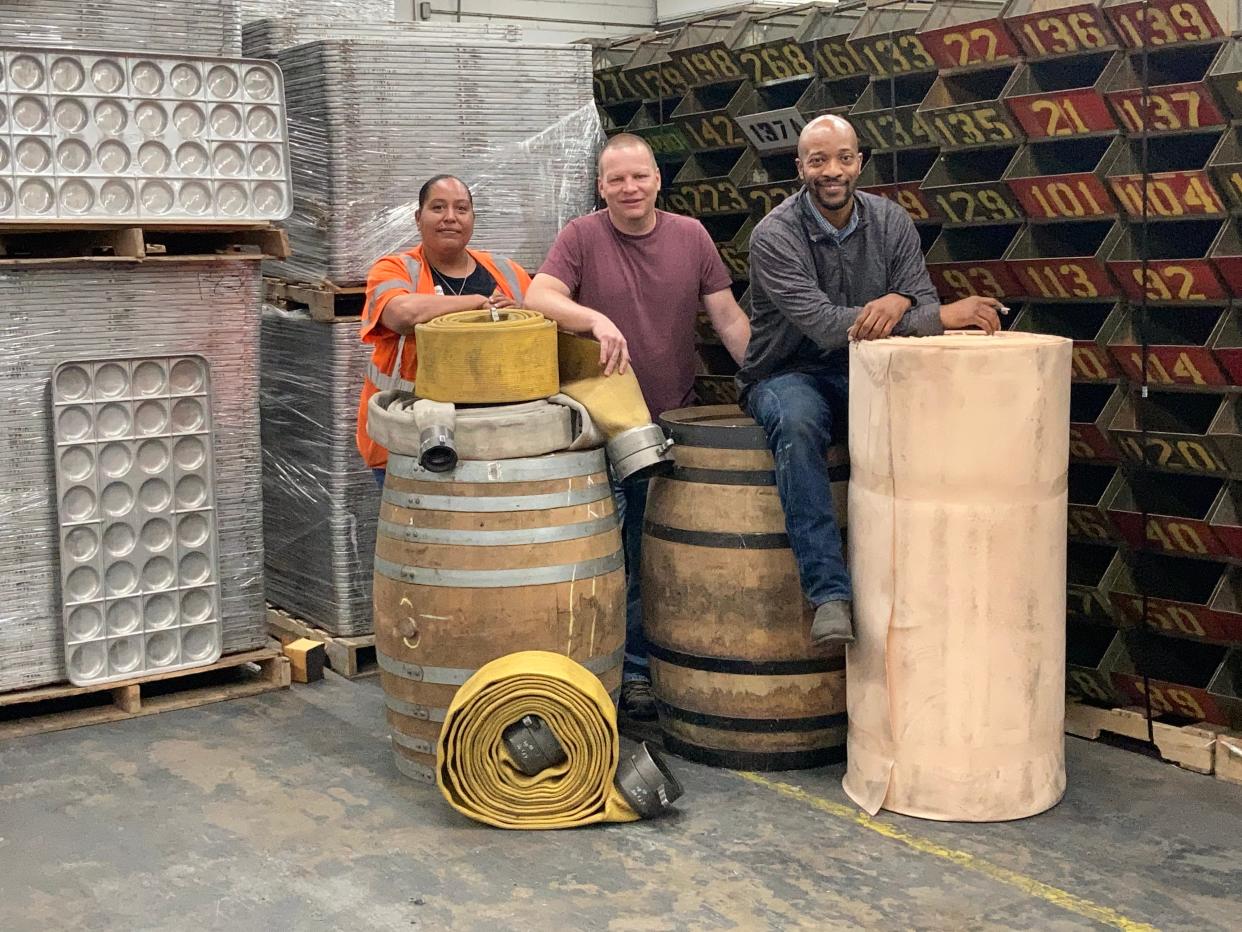Eco-friendly industrial thrift store entrepreneur finds second life for waste materials

repurposedMATERIALS is more than an industrial thrift store. It’s a business dedicated to keeping 20,000,000 pounds – about 250 truckloads of waste material − out of the landfill this year by repurposing waste material, says founder Damon Carson.
“We're focused on the reuse side of reduce, reuse, recycle,” said Carson in a play on the popular catchphrase of the sustainability movement.
“For a homeowner or business, typical reuse is a boat, a forklift or a refrigerator if you’re done with it you put it up on Facebook Marketplace," he said. "You sell it and in a second life the boat stays a boat, the forklift stays a forklift and a refrigerator stays a refrigerator. Repurposing is an offshoot, a cousin on the reuse side, but in repurposing the asset, the material gets a very different second life.”
Carson said another example of repurposing an asset, giving an asset a very different second life would be a firehouse that’s aged out being used as a boat dock bumper.
Upcycling or repurposing will reduce the carbon footprint and have a positive effect on climate change, according to experts at Michigan State University. Upcycling is an even greener way of recycling. Usually the only energy being used is your own and it can save you money.

Benefits of reducing and reusing include, according to U.S. Environmental Protection Agency:
Reduces greenhouse gas emissions that contribute to climate change;
Prevents pollution caused by reducing the need to harvest new raw materials;
Saves energy;
Allows products to be used to their fullest extent; and,
Saves money.
There are six repurposedMaterials locations including one in Williston, South Carolina, located at 70 State St., about 40 miles east of Augusta. Operating hours are 9 a.m. to 5 p.m. Monday through Friday.
“We are always out in the industry spreading the word,” said Carson. “Society is demanding that corporations, large companies, and small companies become more environmentally responsible. So it's no longer politically correct to just mindlessly call up a trash company, get a dumpster and throw everything in the trash can.
“There's a lot of pressure on these companies to do the right thing by the environment. So as we wave our hands and market and advertise, more and more companies are starting to call us.”
Whether you’re looking for material for a home DIY project or not quite sure what you’re in the market for, Carson says there’s a little bit of something for everyone.
“We're kind of a Habitat for Humanity ReStore on steroids,” said Carson. “A Habitat ReStore is more building and consumer specific, with smaller quantities. Whereas we're bigger on a commercial, industrial scale. We have pallets and semi trucks loaded with different materials.”
Potential customers can either shop in stores or online. Online shoppers have the option to shop by material which includes an array of inventory from wood, rubber, concrete, stone, flooring to containers or synthetic turf. There’s also a tab for folks in the landscaping, construction or farm & ranch industry.
Plastic vs. Reusable bags?: How many times do you need to use your reusable bags to make it count? What the experts say
Carson said prior to stepping into a more eco-friendly form of entrepreneurship he owned a garbage business.
“A couple of things kind of collided,” he said. “I used to own a traditional garbage business in the ski resorts of Vail and Breckenridge, Colorado. We would just take trash loaded up in the front, take it to the landfill, and dump it out. As we would empty those trash trucks we would find a lot of usable materials that were just being mindlessly discarded.”
Carson offers a tip for anyone unsure whether or not an item is a candidate for a second life.
“Referrals are huge because people don't know what to do with waste,” he said. “If your car breaks down you call the tow truck and or the car mechanic. There are some things that need to be recycled. But there are a lot of materials that have reuse value. If you come across something that’s obsolete, ask yourself, ‘Could this be of use to a farmer or rancher?’ If so, that would be a good clue that this is a possible candidate for repurposing.”
This reporting content is supported by a partnership with several funders and Journalism Funding Funding Partners.
Erica Van Buren is the climate change reporter for The Augusta Chronicle, part of the USA TODAY Network. Connect with her at EVanBuren@gannett.com or on X: @EricaVanBuren32.
This article originally appeared on Augusta Chronicle: Eco-friendly thrift store in SC gives second life to most waste materials
